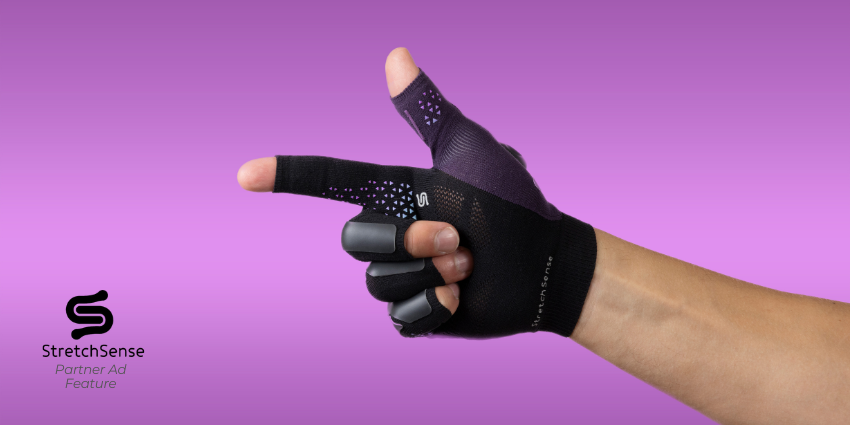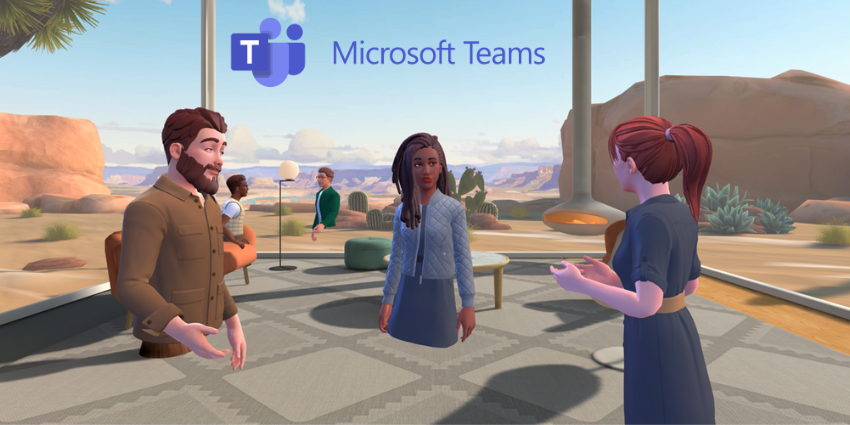This week, HaptX gained a Phase 1 Small Business Technology Transfer program grant from the U.S. Department of Health and Human Services, National Institutes of Health, and National Eye Institute to advance research into using haptic solutions to provide accessible XR applications for visually impaired groups.
HaptX Founder and CEO Jake Rubin added:
Our research team will explore solutions that can significantly improve digital experiences for visually impaired people. By unlocking access to the vast array of content previously inaccessible to people with limited sight, this project intends to make digital inclusivity a tangible reality.
HaptX is leading the research alongside Old Dominion University (ODU) and Georgia Institute of Technology, which are also gaining investments from the funding round.
HaptX provides its microfluidic actuation haptics technology to the research, providing precise fingertip rendering of virtual braille content.
The broader research team will leverage this haptic technology and its software algorithms that map the braille virtual content as touch-based feedback.
According to the research team, the work extends away from visually impaired groups and provides usage in work environments.
The team notes how the research could create increased immersion when interacting with virtual charts, figures, and topographic maps – unlocking educational and enterprise use cases.
Leading Haptics Research
The research uses haptic glove technology to create a new patient-facing solution that creates an immersive touch simulation of braille characters and refined digital images, transforming how visually impaired individuals navigate XR.
Associated research leader Dr Michel Audette, PhD, also noted that the HatpX research project offers an “altruistic aspect” towards creating an immersive solution that makes “a difference in the integration and instruction of the Visually Impaired community.”
Dr. Audette also said:
At the same time, computer-assisted medicine is undergoing an algorithmic revolution in the form of deep neural networks and freely available source code and data repositories. New collaborations arise serendipitously and lead to projects that none of us could have foreseen. This is true of my relationship with HaptX; my original interest involved a proposal on obstetrics simulation based on their haptic glove. This new ‘VR for VI’ project captivated us.
The HaptX research team is working to develop a proof-of-concept haptic device to facilitate an improved XR experience for its targeted users. Based on the early concepts, the team will assess the commercial potential of building a Phase II prototype.
Are Haptic Gloves Making a Comeback?
The haptic glove market has immense potential, and there is growing investment in XR technology. However, the development of haptic gloves has slowed down recently. Despite companies like HaptX, WEART, and Senseglove pushing innovation in this space, haptics seems to have lost some of its appeal.
Meta is still investing in its Reality Labs division, and more developments may be underway. In 2022, the XR leaders acquired Lofelt, a haptic device startup, as it was working on new Quest products.
Meta has recently partnered with Immersion Corporation, a company specialising in haptic technology. This collaboration aims to use Immersion Corporation’s patents to improve Meta’s XR hardware, software and products.
Haptic technology is a touch-based feedback technology that enhances XR peripherals and applications. This patent technology increases realism and immersion during an AR/VR/MR experience. For example, haptics can simulate real-world assets or machinery in training, improving experiences and outcomes.
Moreover, Meta released Haptics Studio and SDK, two software solutions allowing developers to add advanced haptic considerations into their Quest lineup.
2024 is expected to be a year with significant technological advancements. Still, it remains to be seen if haptic gloves will continue to receive investment and play a part in the future.







